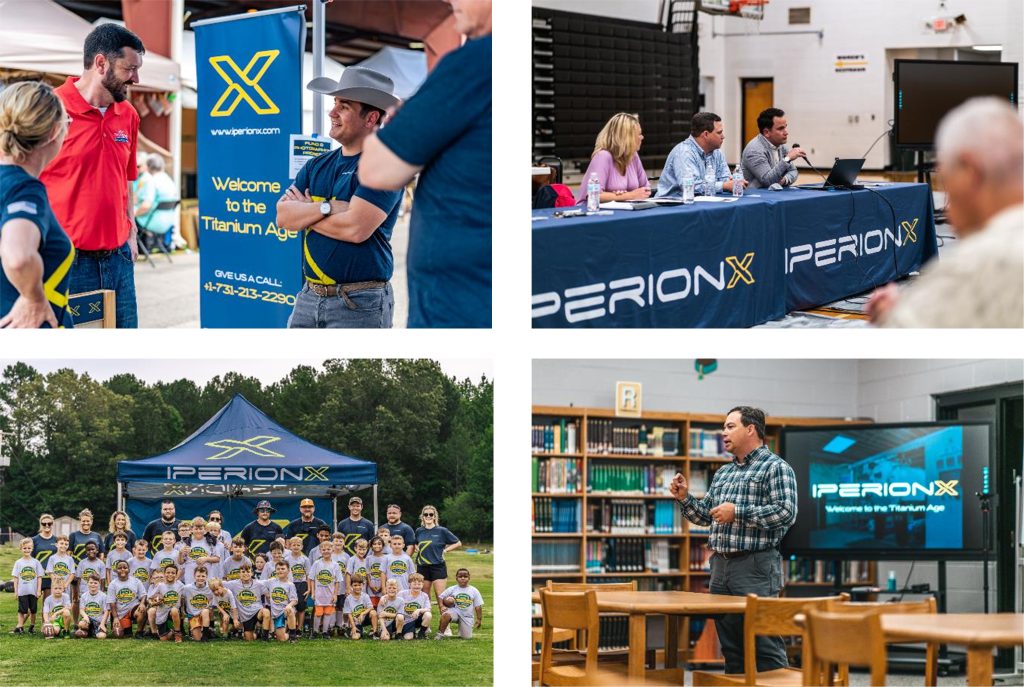Nominations are now open for the 3D Printing Industry Awards 2023. Who are the leaders in 3D printing? Find out on November 30th when the winners across twenty categories will be announced during our London-based live awards ceremony.
North Carolina-based titanium developer IperionX has secured key development permits for the Titan Project in Tennessee, the largest Joint Ore Reserve Committee (JORC)-compliant resource of titanium and rare earth rich mineral sands in the US.
One of the most advanced critical mineral projects in the US, Titan plays a key role in securing material supply chains for titanium and rare earths needed for defense, electric vehicle, and renewable energy applications.
The major development permits include the National Pollutant Discharge Elimination System (NPDES) Permit and Surface Mining Permit, which have been issued by the Tennessee Department of Environment & Conservation. Any additional regulatory requirements for the development of the Titan Project are expected to be complete by the end of the year.
The Titan Project is key to IperionX’s plans to reshore a strong and sustainable supply chain for titanium metal within the US. The company is also working to close the loop on this supply chain by recycling titanium material.
“Successfully securing these key permits for the Titan Project – North America’s largest deposit of titanium and rare earth critical minerals – is an important milestone in our plan to re-shore critical material supply chains, with our key focus on building a sustainable and low cost titanium mineral to metal supply chain,” commented IperionX CEO Taso Arima.
“The IperionX team have done an outstanding job in progressing from mineral discovery to the grant of key permits in just three years, and we appreciate the significant support from our stakeholders in our Tennessee community with who we are committed to developing a world class operation that can play a key role in sustainably re-shoring American jobs and advanced industry.”

IperoinX and the Titan Project
IperionX has been awarded these permits following over two years of focused community engagement and education on the sustainable development of the Titan Project. These efforts have created strong community support for the project.
The company launched its ‘sustainability first,’ community-centered approach for the Titan Project back in 2021 when it opened an office in Camden, Tennessee. Served by seven full time employees, this office provided clear and transparent communication channels regarding the Titan Project for community stakeholders.
The US currently sources over 80% of titanium minerals and almost 100% of its separate rare earth oxides from foreign countries. According to IperionX, the Titan Project can become a key source of titanium and rare earth minerals within the US. This will reduce the reliance on mineral imports from foreign countries and strengthen low-carbon supply chains for US industry.
An Initial Assessment (Scoping Study) for the Titan Project, published in 2022, highlighted notable economic benefits. For instance, the study projected a life-of-mine annual EBITDA of ~$117 million, an after tax NPV8 of $629 million, and an after-tax IRR of 40%. IperionX now plans to assess the application of its titanium technologies to upgrade ilmenite at the Titan Project. It is hoped that this will produce higher grade, low carbon, Green Rutile.
Away from the Titan Project, IperionX cooperates on a range of US government funding and incentives available to re-shore critical material supply chains. These include the Defense Production Act Title III program and a range of Department of Energy programs facilitated by the Inflation Reduction Act and Bipartisan Infrastructure Law.

Reshoring supply chains in the 3D printing industry
The Titan Project forms part of IperionX’s ongoing efforts to reshore supply chains and increase the sustainability of materials used in additive manufacturing. Earlier this year, the company signed a deal with Ford to supply the automotive manufacturer with 100% recycled titanium.
A recent Life Cycle Assessment (LCA), conducted by independent LCA consultancy EarthShift Global, outlined the environmental benefits of IperionX’s titanium offering. The LCA highlighted that titanium powder produced at IperionX’s Virginia-based Titanium Demonstration Facility (TDF) possesses a life cycle carbon footprint of 7.8kg of carbon dioxide equivalents per kg. According to IperionX, this represents the lowest quantified life cycle carbon footprint for commercial titanium powder.
During RAPID + TCT 2023 6K Additive, a producer of industrial 3D printing materials, announced a partnership with Australian based company Surgical Metal Recycling (SMR) to recycle end of life surgical implants.
UniMelt, 6K Additives production-scale microwave plasma platform, is leveraged to convert these implants into new titanium powder, which can then be used to 3D print new implants, reshoring a sustainable supply chain in the US. Leslie Frost, Senior Director of Marketing at 6K Additive, told 3D Printing Industry that this process will allow for an “incredibly sustainable and circular supply chain.”
Subscribe to the 3D Printing Industry newsletter to keep up to date with the latest 3D printing news. You can also follow us on Twitter, like our Facebook page, and subscribe to the 3D Printing Industry Youtube channel to access more exclusive content.
Are you interested in working in the additive manufacturing industry? Visit 3D Printing Jobs to view a selection of available roles and kickstart your career.
Featured image shows engineers at one of IperionX’s pilot facilities. Photo via IperionX.


